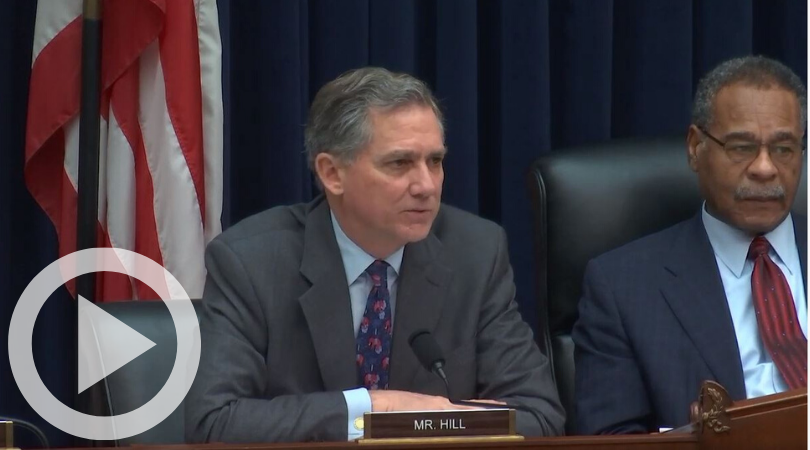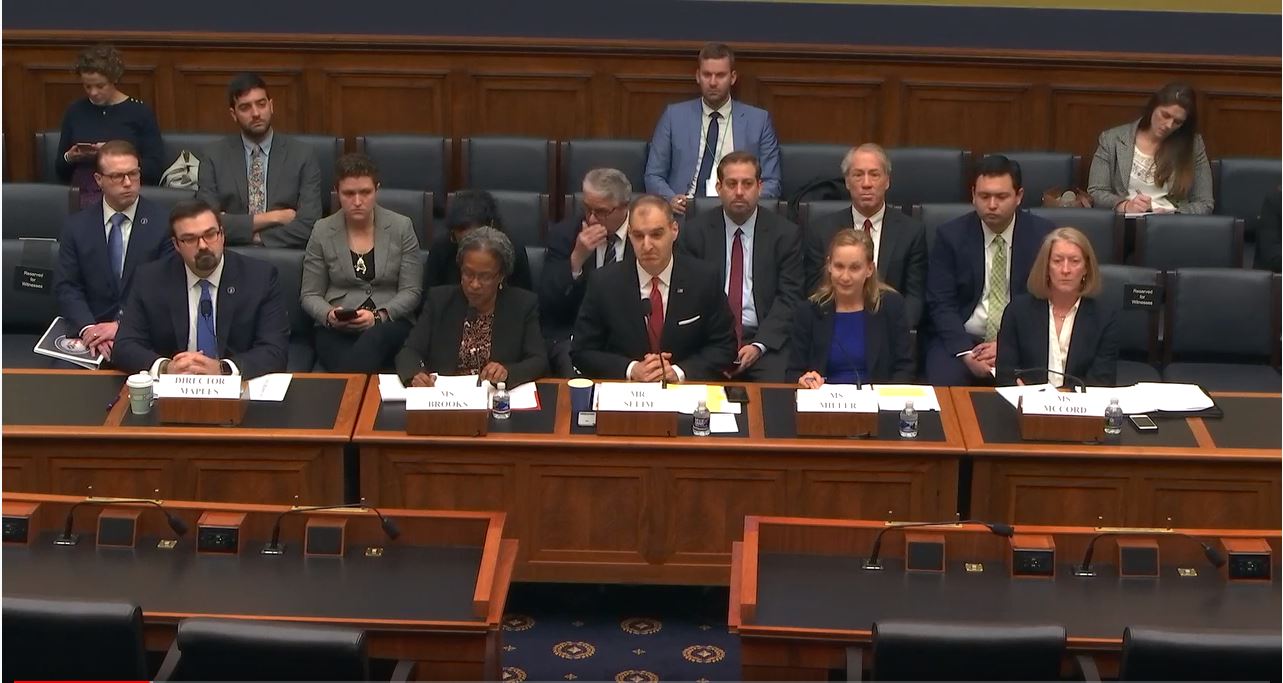WASHINGTON, D.C. — The Ranking Member of the House Financial Services Subcommittee on National Security, International Development and Monetary Policy, Congressman French Hill (AR-02), joined Subcommittee Chairman Congressman Emanuel Cleaver (MO-05) in leading a House Financial Services Subcommittee hearing entitled, "A Persistent and Evolving Threat: An Examination of the Financing of Domestic Terrorism and Extremism."
This hearing focused on assessing how domestic terrorism and extremists are funded and how financial institutions and law enforcement can counter domestic terrorism funding. Congressman Hill states that we need to work with our law enforcement agencies to ensure violence and hatred cannot continue to grow in the United States.
Congressman Hill highlighted how initiatives like the Boycott, Divestment, and Sanctions (BDS) movement are contributing to anti-Semitic sentiment across our nation. Last May, protestors interrupted a Holocaust Remembrance Day in Russellville, Arkansas, bearing signs with anti-Semitic language.
Congressman Hill also mentioned two Arkansas servicemembers, Private William Long and Private Quinton Ezeagwula, who were shot by a radicalized Islamic extremest outside of a Little Rock Army recruiting center in 2009. Watch his remarks HERE or by clicking on the image below.

Congressman French Hill (AR-02), joins Congressman Emanuel Cleaver (MO-05) in leading the
Financial Services Subcommittee on National Security, International Development and
Monetary Policy. |
Pictured below: Witnesses who participated in Wednesday's hearing included
The Honorable Jared Maples, Director, Office of Homeland Security and Preparedness,
State of New Jersey;Rena Miller, Specialist in Financial Economics, Congressional Research Service;
George Selim, Senior Vice President for Programs, Anti-Defamation League;Lecia Brooks,
Chief Workplace Transformation Officer, Southern Poverty Law Center; andMary B. McCord,
Legal Director, Institute for Constitutional Advocacy and Protection, Georgetown Law.
 |
Highlights of Congressman Hill's remarks are copied below.
Over the past five years that I’ve served in Congress, I’ve served on the Illicit Finance Subcommittee during that entire period. I know we’ve had many hearings about terror financing and related topics, but I don’t remember us focusing on and analyzing the issue from a domestic perspective. I look forward to a constructive dialogue about ending this threat.
Violent extremism is considered a growing problem in this country; FBI director Chris Wray testified before the Senate last year stating that homeland violent extremists are the greatest, most immediate terrorist threat to the homeland. Big statement. Furthermore, a report released by the Department of Homeland Security in September 2019 outlines domestic terrorism and mass attacks are as great a threat to the United States as foreign terrorism. Since 9/11, there have been 85 incidents of violent extremism committed, according to the GAO (Government Accountability Office). This extremism has been impacting constituents in Arkansas all the way back to the 1980s. In 1985, current Arkansas Governor Asa Hutchinson, who was then a U.S. attorney, helped dismantle the operations of the Covenant, the Sword, and the Arm of the Lord, a malicious white supremacy group operating in north Arkansas. More recently in 2009, a domestic radicalized Islamic extremist opened fire at the military recruiting station in my district in Little Rock, Arkansas, killing Private William Long of Conway, Arkansas, and wounding my friend Private Quinton Ezeagwula from Jacksonville.
These attacks are not isolated incidents, and we need to ensure as policymakers where we can better assist law enforcement efforts to track their funding and monitor their inner debt usage to inhibit the growth. Recent anti-Semitic attacks in the New York area are deeply concerning. The continued demonization of Israel through initiatives like the Boycott, Divestment, and Sanctions (BDS) movement in this country are contributing to that anti-Semitic sentiment across our nation. I am disappointed to report that last May in my home state, protesters interrupted a Holocaust Remembrance Day in Russellville, Arkansas, bearing signs with anti-Semitic language. I’ve long opposed the BDS movement and cosponsored several bills to that effect, including our ranking member Mr. McHenry’s legislation in the 115th Congress. I applaud the House for passing H.R. 246 last July that opposes efforts to delegitimatize Israel, but personally, I don’t think it went far enough. A watered-down, non-binding resolution isn’t sufficient.
I believe we should pass H.R. 336, the Strengthening America’s Security in the Middle East Act, being led by my colleague Michael McCaul of Texas. Title four of this legislation includes the Combating BDS Act, which would allow a state or local government to adopt measures to divest assets from entities using boycotts, divestments, or sanctions to influence Israel’s policies. We need to create bipartisan solutions to ensure that violence and hatred do not continue to grow. I applaud the joint departments of the Department of Homeland Security, the Department of Justice, the FBI, and the National Counterterrorism Center, and what they’ve done to implement efforts to counter this violent domestic extremism. I encourage my colleagues today to think about ways the House Financial Services Committee can help underscore and contribute to the great work being done.



